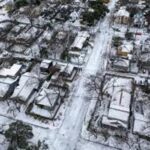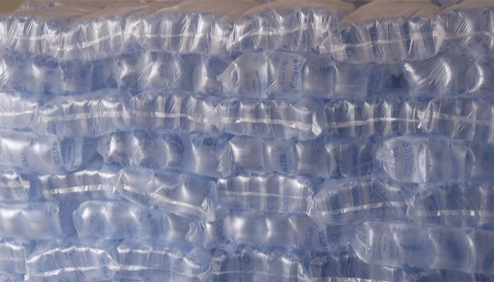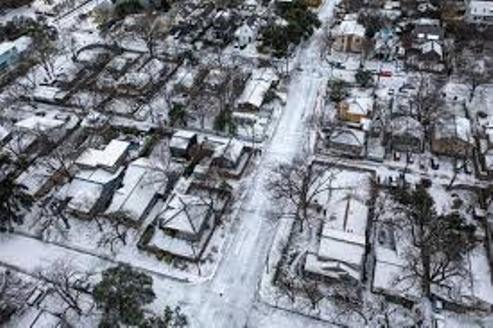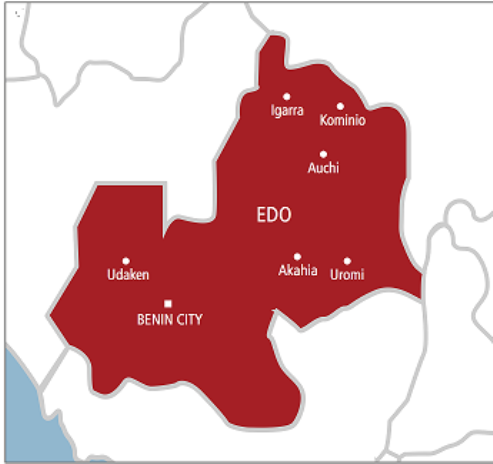LAGOS MARCH 10TH (NEWSRANGERS)-Nigerians living in the commercial city of Nigeria, Lagos, and in the Federal Capital Territory (FCT), Abuja, have lamented the over hundred percent increase in the price of sachet water popularly known as “Pure Water.”
Water is an essential product to life.
According to Fela Anikulapo Kuti, the late afrobeat musician, in one of his hit songs, ‘Water no get enemy’’ (water has no enemy).
W.H. Auden, in one of his famous quotes, wrote: “Thousands have lived without love, not one without water.”
Today, Nigerians are asking the question, “who are those trying to make water our enemy?”
The joke in town nowadays is that “pure water” has become gold.
Findings by BusinessDay showed that what is known as a bag of sachet water which contains 20 sachets, is now sold for N300 by factories while retailers sell for N380 to N400 as against the initial price of between N80 to N150.
A-50 cl sachet of ‘pure water’, which, before now was sold for N10, is now sold for N30 depending on the area if one wants it chilled or warm.
Some also sell as high as N420 a bag if it is chilled.
This development follows the trend of minute-by-minute rise in prices of goods and services in the country currently battling unimaginable inflation.
Some sections of Lagos residents who shared their experiences with BusinessDay lamented that “pure water” has been their “saviour” due to the unavailability of a reliable supply of safe and hygienic water.
BusinessDay findings further revealed that millions of people in the country, especially in the commercial cities, shanties and rural areas rely on the popular “pure water” for their daily drinking needs.
Pure water producers, under the Association of Table Water Producers Association of Nigeria, recently announced they have imposed an increase due to rising production costs.
Some “pure water” companies who spoke to BusinessDay in Ibeju Lekki axis of Lagos State cited the increase in cost of production, saying that they could no longer afford to produce at a loss.
“We can’t continue the way we were going. At one point, many of us wanted to shut down completely but after our general meeting, we decided to carry on but not as we used to,” one of the factory operators, who pleaded not to be mentioned, told BusinessDay.
“What is the essence of venturing into a business if instead of making gains you are losing the little one you have secured. Prices of raw materials we use for production are now 200 percent higher than what we used to buy them. So, the only option to remain in business is to increase the price of the product,” he said.
Nigerians on the streets of Lagos and marketplaces are not happy with the development and are calling on the government to show more concern to the plight of the masses.
Babawale Tunde, who loads buses in the motor park, around Ilaje, said: “My brother, this one tire me. How we take survive? Just when we say we no fit buy food chop again, now water don join food. I stand here under the sun for the whole day. When it was N10, I drink at least 10 to 15 but now, I have to reduce it to five. This government has to wake up. Na only God go save us.”
Iya Segun, a market woman in Jakande Market, said: “Wetin you want make I talk? You no know say everything don spoil? Tinubu don finally finish us. The worse you can do to any living thing is to deny them water. Food aside, no one can do without water and that many people can no longer afford ordinary ‘pure water’ is a big problem. I be mama, I get four children. Before, we dey buy three bags for N750. But now three bags na N1,200. Tell me, how we wan take do am? Na only water person go drink?”
A Lagos-based medical expert with the state hospital Ota, who spoke with BusinessDay that the hike in price of sachet water may lead to waterborne diseases and deaths.
According to him, people, mostly those living in shanties and rural areas will now resort to contaminated water due to their inability to afford cleaner water for themselves and members of their families.
He listed some of the most common waterborne diseases to include “Typhoid Fever, Cholera, Dysentery, Escherichia Coli (E. coli), Hepatitis A, Salmonella,” and called on the current administration to “see to the welfare of ordinary Nigerians,” adding that “if all citizens have access to clean water, these diseases would not exist.”
Consumers of sachet water in the Federal Capital Territory (FCT) have also decried the sudden increase in the price of the commodity.
The consumers expressed their dismay in separate interviews with BusinessDay.
According to them, it is not fair for producers of sachet water to increase prices of the commodity indiscriminately.
Dongo Garuba, a transporter said: “This pure water is what we buy on a daily basis while travelling to any state, it is the cheapest way to quench our thirst. A sachet of water before now was sold for N5, but suddenly increased to two for N15, it was changed to N10 per sachet, but unfortunately, it rose to N15 per sachet and now two for N50.
“It is the producers or the hawkers that increased the price indiscriminately and without any explanation; we do not understand what is happening anymore.’’
Another consumer, who identified himself as Hassan, said: “I got to one of the factories this morning (penultimate Thursday) only to be told that a bag of sachet water has increased from N200 to N380; this is unimaginable.
“If we say the economic situation is bad, we should not make life harder for ourselves, the situation is unfortunate and no one is telling us why,” he said.
He urged the appropriate authorities to look into the development, adding that the development was not in the interest of the consumers.
Some officials of water producing industries in Lekki, Lagos have insisted that the decision to increase the price was due to the prevailing economic situation in the country.
The Assistant General Manager of Merit Water, Abigail, blamed the hike on the price of sachet water on the lack of adequate power supply and subsequent increase in the cost of production.
“We have been producing at little or no profit; in actual fact, we cannot compromise our standard of production. There is an increase in the cost of materials, the filters, and the diesel to power our machines do not come cheap. We buy a litre of diesel for N1550 and we use an estimate of 50 litres per day. So, we are forced to keep producing to stay in the market.
“Our consumers should please understand that this is not our fault, it is because we want to maintain our standard of producing clean water,’’ she said.
BusinessDay
For media advert placement, events coverage, public relation consultancy, media placement and further inquiries please WhatsApp 2348023773039 or email: labakevwe@yahoo.com










